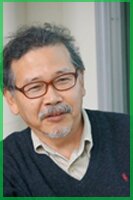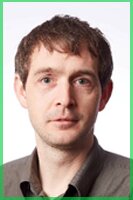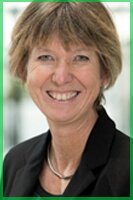
UNION LECTURERS

David Grimes
David Grimes has been Assistant Deputy Minister and head of Environment Canada's Meteorological Service of Canada since July 2006. He has been Canada's Permanent Representative with the World Meteorological Organization (WMO) since December 2006. David was elected President of the WMO in 2011 and re-elected in 2015 for another four-year term. He has more than 25 years of experience working with WMO initiatives and programs. He has over 40 years of scientific, operations, research and management experience at Environment Canada. His experience also includes a significant number of challenging positions and assignments over the years, ranging from weather forecast operations to science policy. He occupied the position of Director General with the Meteorological Service of Canada for 15 years.
David Grimes has extensive educational experience in the domains of science and management (MBA level). He holds a Bachelor of Science in physics, mathematics and meteorology. He was also trained as an operational meteorologist and has carried out these responsibilities during his career.
Waleed Abdalati
Waleed Abdalati is Director of the Cooperative Institute for Research in Environmental Sciences (CIRES), a joint institute of the National Oceanic and Atmospheric Administration (NOAA) and the University of Colorado, Boulder (CU-Boulder). He is also a Professor in CU-Boulder’s Geography Department. His research focuses on the use of satellites and aircraft to understand how Earth's glaciers, ice sheets, and sea ice are changing and the implications of those changes for the Earth System. In 2008, he became Director of the Earth Science and Observation Center, which is a research center within CIRES that focuses on the application of remote sensing observations to understand Earth’s physical and ecological processes. From January 2011 to December 2012, while on leave from CU-Boulder, Waleed Abdalati served as NASA Chief Scientist, advising the NASA Administrator on matters related to NASA’s science programs and strategic planning. His career also includes working as an aerospace engineer in industry, a research scientist and branch head at NASA’s Goddard Space Flight Center, and manager of NASA’s Cryospheric Sciences Program at NASA Headquarters. He earned a B.S. from Syracuse University and an M.S. and Ph.D. from CU-Boulder. Waleed Abdalati has received various professional awards and distinctions, including from the White House, NASA, NSF, and the American Institute for Aeronautics and Astronautics.


Kosuke Heki
Kosuke Heki is professor in the Department of Earth and Planetary Sciences, Hokkaido University, Sapporo, Japan. He obtained bachelor, master and doctoral degrees in geophysics all from the University of Tokyo in 1979, 1981, and 1984, respectively. After working in a Very Long Baseline Interferometry (VLBI) team 1984 – 1994 in the Kashima Space Research Center (also working as a post-doc 1990-1992 in Durham, UK), he moved to the Earth Rotation Division, National Astronomical Observatory, Mizusawa, in 1994. Since 2004, he has been working as a professor in Hokkaido University. He applies space geodetic techniques to various disciplines in earth and planetary physics, including time-variable gravity for studies of earthquakes and cryosphere, GNSS positioning for slow deformation of the earth, and sensing of the upper atmosphere with GNSS. He pioneered geodetic studies of slow fault slips, seasonal crustal deformation, co- and postseismic gravity changes, and ionospheric disturbances associated with earthquakes and volcanic eruptions. He has been serving as the president of the Geodetic Society of Japan since 2015, and as the chair of the Science Panel of the Global Geodetic Observing System (GGOS), International Association of Geodesy (IAG) since 2018. He was the Bowie Lecturer in the 2011 American Geophysical Union Fall Meeting. He has authored about 140 papers in peer-reviewed journals, and his most cited publication is “Silent fault slip following an interplate thrust earthquake at the Japan Trench” (Nature, , 1997).
Lisa Tauxe
Lisa Tauxe is a Distinguished Professor of Geophysics at the Scripps Institution of Oceanography, UCSD. Her research is on the magnetism of geological and archaeological materials, which she uses to solve a variety of geological and geophysical problems. Her current focus is to understand the behavior of Earth’s magnetic field, in particular its strength, on time scales ranging from the archaeological to planetary time scales. Lisa Tauxe has published over 200 scientific papers and books; her textbook is freely available online and is used by students the world over. She is a fellow of the American Geophysical Union, the American Association of Arts and Sciences and the Geological Society of America. She won the Benjamin Franklin Medal for Earth and Environmental Sciences and the Arthur L. Day Medal from the Geological Society of America. She is also a member of the American Academy of the Arts and Sciences and the National Academy of Sciences. She earned her PhD from Columbia University.


Veena Srinivasan
Veena Srinivasan is a Fellow at the Ashoka Trust for Research in Ecology and the Environment (ATREE), Bangalore, where she leads the Water, Land and Society Programme. Her research interests include inter-sectoral water allocation and conflict transformation, impacts of multiple stressors on water security, ground and surface water linkages, low-cost sensing and citizen science, and sustainable water management policy and practice. Her recent research has focused on understanding anthropogenic and climatic influences in urbanizing watersheds and identifying appropriate policies and adaptation measures. More recently, she has initiated work on Bangalore's lakes with the goal of understanding how lakes can contribute to water security as well as creating a citizen's dashboard, which synthesizes data from low-cost sensors and citizen scientists to help manage urban lakes better. She has served as a resource person for the National Water Mission, and the groundwater sub-group of the Water Task Force of the Karnataka Knowledge Commission. She is on the leadership team of the Panta-Rhei initiative of the International Association of Hydrologic Sciences (IAHS).
She was recently appointed to the Strategic Advisory Group of the task force or Monitoring SDG6 by UN-Water. She serves on the Steering Committee of the Forum for Water Conflicts in India. Veena Srinivasan has won several awards for her work, including the 2015 Jim Dooge Award for best paper in the journal Hydrology and Earth System Science from the European Geophysical Union and the 2012 Water Resources Research Editor's Choice Award from the American Geophysical Union. She is also a recipient of the Teresa Heinz Environmental Scholars Award. Veena Srinivasan received her PhD from Stanford University’s Emmet Interdisciplinary Program in Environment and Resources (E-IPER). As a post-doctoral scholar at Stanford, she was instrumental in developing a framework for a Global Freshwater Initiative at Stanford to understand patterns in the nature and causes of global water crises. Prior to joining Stanford University, she worked for several years on energy and water issues in India, California and globally in the private and non-profit sectors. Veena Srinivasan holds a Masters in Energy and Environmental Studies from Boston University and a B-Tech in Engineering Physics from the Indian Institute of Technology, Bombay.
Ed Hawkins
Ed Hawkins is a climate scientist at the National Centre for Atmospheric Science at the University of Reading, and a Lead Author for the upcoming Intergovernmental Panel on Climate Change 6th Assessment Report. His research examines how and why the climate has changed since the industrial revolution, and how it may change over the coming decades, particularly the interplay between natural climate variations and anthropogenic trends. He also leads Weather Rescue – a citizen science project involving thousands of volunteers – which is recovering millions of lost Victorian-era weather observations from hand-written archives and turning them into invaluable digital data. Ed Hawkins also actively engages with a variety of audiences about climate change, especially through blogs, social media and graphical visualizations.


Karen Kohfeld
Currently a professor in the School of Resource and Environmental Management at Simon Fraser University in Vancouver, Canada, Karen Kohfeld received her PhD from Columbia University (USA) and has worked previously at Lund University (Sweden), the Max Planck Institute for Biogeochemistry (Germany), and Queens College of the City University of New York (USA). She is best known for her work in Earth Systems science and global carbon cycling, using global paleo-environmental datasets to understand the role of atmospheric dust, ocean productivity, and circulation changes in glacial-interglacial climate and the carbon cycle. As part of this work she has developed and led international data synthesis initiatives such as the “Dust Indicator and Records of Terrestrial and MArine Palaeoenvironments” (DIRTMAP) database as well as the newest, PAGES-sponsored “Cycles of Sea-Ice Dynamics in the Earth System” (C-SIDE) initiative aimed at understanding the glacial-interglacial role of Southern Hemisphere sea-ice cover in the Earth system.
A former Canada Research Chair, Karen Kohfeld formed the Climate, Oceans, and Paleo-Environments (COPE) laboratory at SFU in 2006, where she also investigates regional changes in climate and extreme weather, fire frequency, and coastal and lacustrine carbon storage. Since 2015 she has led the five-year Canada-wide “Integrated Coastal Acidification Program” (I-CAP) designed to understand the impact of ocean acidification on Canadian coastal communities. An author or co-author on over 42 publications, she has contributed to the Intergovernmental Panel on Climate Change and the Millennium Ecosystem Assessment, served on the external science advisory group for the Bolin Climate Centre at Stockholm University, been a visiting professor at the University of Bristol and the University of Tasmania, and in 2017 was chosen as East Coast Tour Speaker by the Canadian National Committee for the Scientific Committee on Oceanographic Research (CNC-SCOR).
Vera Schlindwein
Vera Schlindwein is a senior scientist at the Alfred Wegener Institute (AWI), Helmholtz Centre for Polar and Marine Research in Bremerhaven, Germany. She received her Diploma degree in geophysics at the University of Munich in 1994, where she worked on harmonic tremor signals of Semeru Volcano, Indonesia. After a first participation on a cruise of RV Polarstern to East Greenland, she moved to the AWI and did her PhD on the crustal architecture of East Greenland, graduating in 1998. After that, she obtained a DAAD and an ERC Marie Curie Fellowship for a two-year project at the University of Durham, UK. In 2006, she became leader of an Emmy-Noether Junior Research Group at AWI. Her work since then has mainly focused on the seismicity of polar mid-ocean ridges. In 2013 she received the Venia legendi for geophysics at the University of Bremen, where is has been teaching seismology since 2008. She has participated in 10 polar expeditions. Unusual seismic signals produced by icebergs, ice floes, volcanoes and hydrothermal systems have always been a fascinating side aspect of her seismicity studies.


Paolo Papale
Born in 1964, Paolo Papale started his academic career in 1990 at the University of Pisa, then moved to the National Institute of Geophysics and Volcanology (INGV) of Italy where he has been Director of Research since 2003, and where he coordinated the National Projects in Volcanic Hazards (2005-2010). He became the first Director of the newly born Volcanoes Division (2013-2016) and the founder of the Center for Volcanic Hazards (2016). In 2005 he started serving the European Geosciences Union (EGU) where he was first Secretary for Volcanology (2005-2011), then President of the Geochemistry, Mineralogy, Petrology and Volcanology Division and EGU Council Member (2007-2011).
He was a member of the Commission of the United Nations for the Lake Kivu crisis in 2002, and advisor for volcanic crises and emergency planning operations by the National Civil Protection Department of Italy. Currently he serves as the Chair of the Earth and Cosmic Sciences Section of the Academia Europaea (since 2017), of which he has been a member since 2011. He has been Coordinator, Principal Investigator, WP leader and key person in a number of large projects of the European Union, a founder and co-chair of the Volcano Observatory Best Practice (VOBP) workshop series, Editor of scientific journals and specialized books, founding Editor of EGU-Solid Earth, and evaluator or member of the evaluation panels in EU, NSF, NERC, and many other science funding agencies. His main scientific interest has been directed towards elucidating the physics and dynamics of volcanic processes, mainly through the approaches of mathematical modelling and numerical simulations, and in the development of multi-disciplinary approaches to understand volcano dynamics and forecast volcanic hazards. Besides that, his contributions extend to the scientific organization and management of volcanic crises, and in the roles and responsibilities of scientists to society.



